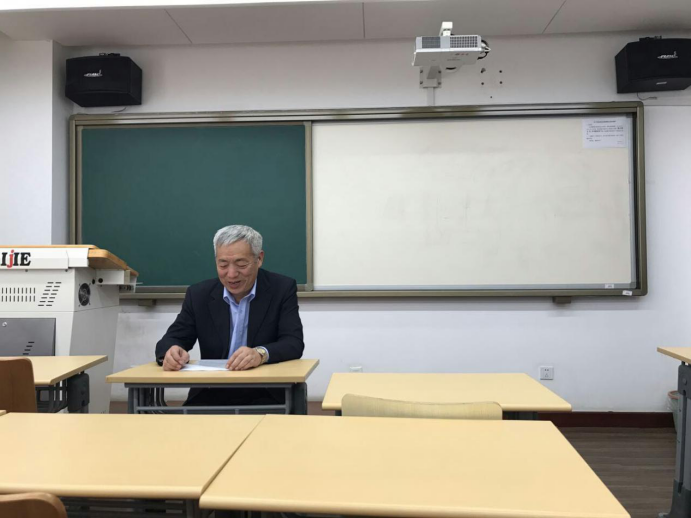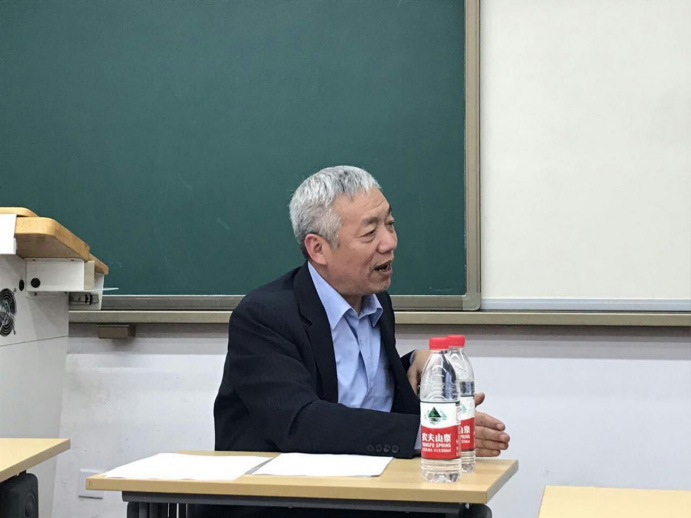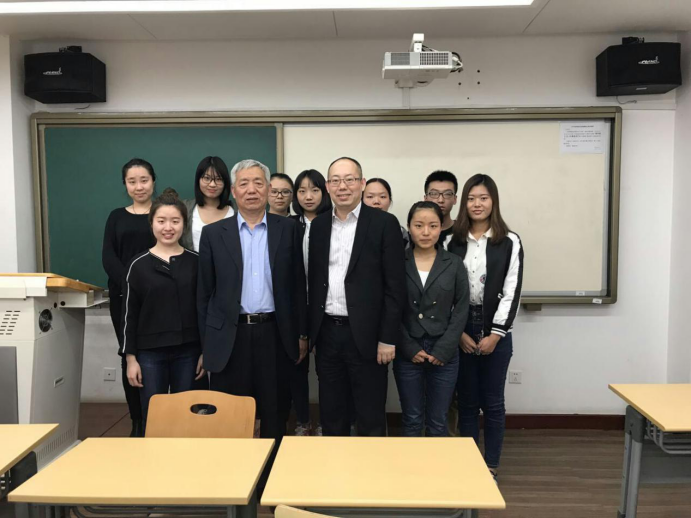21 April, 2017-Ambassador Shen Yongxiang visited the Institute for Human Rights, and delivered an excellent speech to the first-year master's students at the Institute. Prof. Zhang Wei, Executive Vice President of the institute, expressed warm welcome and thanks to Mr. Ambassador!

At the beginning of the lecture, Prof. Zhang Wei gave a brief introduction to Mr. Ambassador. The students who attended the lecture also introduced themselves. Then, the lecture was divided into three parts: the origin and development of human rights, the contribution of the United Nations (UN) in human rights, and the UN human rights monitoring mechanism.
In the first part, Mr. Ambassador said that people generally believe that human rights are the product of Western Christian civilization, but there are also human rights thoughts in ancient China. For example, "Teaching without Discrimination" contains the ideas of education justice thoughts. Human rights term was formally put forward during the Western bourgeois revolution, but the concept of human rights was confined and limited to individual rights, civil rights and political rights. Subsequently, the rise of socialism and communism made the economic and social rights an important part of human rights. Capitalism and socialism have their own unique connotations of human rights, but the capitalist and the socialist who is better at learning from each other will be in the competitive position.
As to the development of human rights, Mr. Ambassador believed the national liberation movement has brought the collective human rights such as the right to self-determination, the right of subsistence, and the right to development into views of the people. According to the Charter of the UN, one of the purposes of UN is to achieve international co-operation in solving international problems of an economic, social, cultural, or humanitarian character. It shows that the human rights do not simply belong to the internal affairs of a country. Mr. Ambassador also held the idea that human rights are the product of the existence and development of human society. It has gained new connotations with the development of society.

In the second part, Mr. Ambassador proposed that the UN has played a significant role in the protection of human rights, such as the abolition of the apartheid system in South Africa and the promotion of colonial liberation. It also prompted the adoption of a large number of human rights documents. Nowadays, UN has nine core conventions and has its own oversight mechanisms. It was suggested that no reservations would be made to the human rights conventions, which were radical and inconsistent with the actual situation. At present, China has participated in the six major UN human rights conventions and submitted its national report in accordance with the requirements of the Convention. Then, Mr. Ambassador introduced some important declarations and resolutions adopted by the World Conference on Human Rights: including the Tehran Declaration, the Vienna Declaration and Program of Action, the Durban Declaration and the Declaration on the Right to Development.
The third part of the lecture is the UN human rights monitoring mechanism, which can be divided into charter mechanisms and treaty mechanisms. Mr. Ambassador made a presentation on the work of the 1503 procedure, the universal periodic review, the country procedure and the Special Rapporteur. He also shared many cases with us. In response to the 1503 procedure, Ambassador Shen pointed out that non-governmental organizations in this procedure could file complaints on behalf of the victims, which focused on whether it constitute a large-scale violation of human rights. The UPR was first proposed by the Western countries, which in order to monitor the human rights situation in various countries and to prevent the double standards. In response to the fact that China has not yet ratified the International Covenant on Civil and Political Rights, Mr. Shen pointed out that the reason is that many of the provisions of the Convention are inconsistent with the actual situation in China.
Finally, Mr. Ambassador encouraged students to actively ask questions. The students have conducted questions on the issue of human rights dialogue, the importance of human rights, the approval of ICCPR, the implementation of the report of the State party, and how to understand the impact of the integration of the international human rights institutions. Mr. Ambassador gave patient answers to all these questions.
The lectures ended in a relaxed atmosphere. Students took a photo with the ambassador and look forward to his next visit.

Written by Liu Linyu